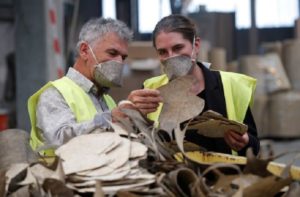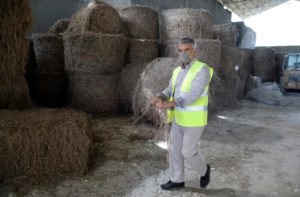The concern is growing over the impact of disposable protective equipment during the pandemic, with an estimated 194 billion single-use face masks and gloves used globally every month worldwide, according to one report. In a factory south of Paris, a laser cuts through a hemp canvas on the production line of what the manufacturer says is Europe’s first compostable face mask.

The French manufacturer Geochanvre has begun developing and selling face masks made from hemp. Unlike medical masks, the cannabis-derived masks are biodegradable and compostable. Hemp masks are a way to reduce plastic waste from single-use personal protective gear during the coronavirus (COVID-19) pandemic. Hemp fibre bales get compressed and rolled before emerging as flat sheets that are ready to be cut into a standard face mask shape and ready for worldwide distribution.

“It’s heresy not to ban polyethylene products, materials that are shipped to all corners of the world. Use local agricultural materials,” Frédéric Roure, founding president of Geochanvre, told “This is a natural product and will go back into the soil.” The mask’s lining includes a corn blend for comfort and the elastic band is recyclable. Bales of hemp fibre are passed through compressors and over rollers before emerging at the end of the line as hard-packed flat sheets, ready to be cut into shape and folded by hand.

So far, 1.5 million Geochanvre hemp masks have been purchased since March. Europeans and Canadians are the primary markets that are purchasing hemp masks. A majority of disposable, single-use personal protective gear comes from plastics. These masks end up in oceans, lakes and landfills, and could take up to 450 years to decompose. A study published in the journal Environmental Science and Technology said approximately 129 billion face masks and 65 billion latex gloves are being used every month.





